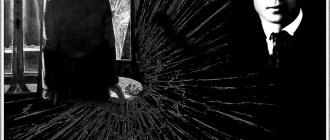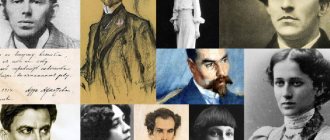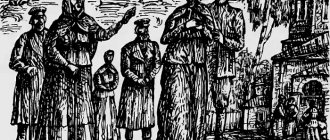The inner world is a concept that was originally used to designate a part of the living space that reflects the mental sphere. At the moment, the division into the inner world of the individual and the external in the scientific understanding is no longer carried out, although the phrase continues to be used synonymously with the concept of the mental. Of all the spectrums of possible manifestations of the psyche, the inner world reflects a state of peace and tranquility, a certain goodness and satisfaction.
The inner world is a representation of a certain reality, formed through the interaction of neurons and at the same time representing mental images about the world, one’s personality and the structure of this same inner world. It is different for each individual and is presented in a single unique variant, formed in a combination of factors of heredity, developmental characteristics, inherent abilities and acquired interests, type of nervous system and characterological characteristics. Further, with age, the formation of a specific internal structure is influenced by life experience, accepted social values, ideals that are a deep reflection of a person, and archetypal images.
Each of the presented human sense organs reacts in a specific way and brings its own individual information; accordingly, the inner world of different people is capable of being painted in different shades even under the same conditions. In this case, the function of reproducing what is received from the outside does not exist, as happens with dreams, but only a process of direct response to what is happening in reality occurs.
What is the inner world of a person
The inner world of a person is formed through direct interaction and establishing connections with society, and is part of consciousness. This is a structure of the psyche engaged in the processing of perception processes and further exteriorization in the processes of external activity (actions, behavior). It is through the external embodiment of internal and invisible work that we can judge the diversity, development and semantic content of the spiritual world, the components of which are psychology, values, personality (internal characteristics), intelligence, behavior. The activity of these components can be manifested with different strengths at different time periods, while the presence and development of each component changes when conditions change. When one will be in the shadow of the unconscious, and the other, on the contrary, will be brightly illuminated by conscious attention. From this interaction and fullness follow such characteristics of the inner world as its richness, harmony, depth, complexity and others.
Usually, a person is not able to completely control his inner world, as well as emotional manifestations, because he is not something effective, but only reacts to external changes. From this provision it follows that the inner world regulates the social society surrounding the individual and external conditions. However, for people who are more focused on their condition than on external events, the ability to control the processes of the inner world becomes simpler and more accessible.
Using an understanding of your inner world for a more successful and harmonious life is an undeniable truth, but at the moment no objective methods of knowledge have been developed. From the work done, phenomenological analyzes are of interest, representing the possibility of considering the individuality of the manifestation of the specificity of parts of the inner world, however, this does not give the right to extend these patterns to all people. Each reaction, each reflection of external events by the internal mirror is a characteristic fixed in space and time, which will change when any of the parameters changes.
Being a reflection of the external, the internal world is not a copy, otherwise it would be the same for everyone. It is initially subjective and refracts the displayed reality through its own filters. A rough metaphor for comparison would be a room of crooked mirrors, where, depending on the mirror, your image changes, but there is no copy of you. Also, several different people reflect each aspect of reality in completely different ways, putting all the resulting images into a multidimensional picture that has hundreds of differences from the other.
Examples from life
- I would like to tell you about one friend of our family. First of all, she always tried to develop and enrich her inner world; since childhood, her mother said that everything in a person should be beautiful - both soul and body. She read a lot, attended classical music concerts, theaters, and practiced drawing, playing the piano, singing, and dancing. I got acquainted with art in its various manifestations, because it is precisely this that has the best influence on our inner world. Over time, we began to notice that our friend had fewer and fewer people in her environment with whom she would spend time. As it turned out in the end, they were simply unable to understand her and her interests, and communication with people from whom there is nothing to learn impoverishes our soul. At that moment, I realized what kind of retribution follows internal self-improvement; if you want to become better, be prepared for misunderstanding from others.
- Why does it happen that a person who is outwardly unattractive attracts the attention of the opposite sex much more than handsome men? It's all about inner beauty; it has always mattered more than outer beauty. A beautiful face and figure changes for the worse over the years, but the spiritual world can become better and better with age. My mother has a friend who, despite her unconventional appearance, has always been very popular among men. But attention and a large number of suitors did not give her the opportunity to start her own family until she was 40 years old. She could not be with that person who had a poor inner world, she simply was not interested in him. So I had to spend so many years searching for my soul mate, but now my mother’s friend is very happily married, she managed to find a person with the same moral values and ideals. Looking at them, I began to understand the true meaning of the expression “lived in perfect harmony.”
What does a rich inner world mean?
Formed on the basis of interaction with external space, the inner world is imbued with new elements and facets. When people talk about a rich inner world, they invariably mean the totality of human experience and imagination. At the same time, experience includes both the presence of practical skills and theoretical knowledge, this also includes erudition and the ability to reason and understand various subjects and their influence on each other. In addition to the width of perception, this also includes its depth, i.e. It is not enough to have a superficial understanding of all areas; it is necessary to understand at least a few of them in detail.
Life experiences that shape the inner world are based on travel and contact with other cultures, whether this is through direct interaction with other people or through art does not matter much. The spiritual world is enriched by reading books and watching films, listening to music and tasting a new dish. Any new experience a person receives invariably expands and enriches his inner world. Depth and richness are also influenced by imagination, when a person does not need others for self-realization or relief from boredom. In principle, a spiritually rich person would be able to develop, travel, and teach others the wisdom of life while being forever locked in solitary confinement with only walls and a bed.
A person with a rich inner world is able to understand anyone else, since his space contains feelings, actions, situations and information about many life moments. This does not mean that he encourages everyone and joins everyone; rather, it reflects a certain tolerance and ability to fit into any circle and situation, to understand the experiences of others, but to act in accordance with his beliefs.
Examples from fiction
- Miguel de Cervantes "The Cunning Hidalgo Don Quixote of La Mancha".
Don Quixote lived in a time of peace and prosperity, when the wars had already ended, and people, tired of death and destruction, began to build a new life. There was no longer a need for chivalry; this concept faded into the background and was gradually forgotten. This suits everyone, except Don Quixote, his courage and nobility cannot live in a calm environment, these qualities contradict his contemporary reality. The author reveals the inner world of the main character by contrasting his personality with the entire world around him. Don Quixote read too much; from morning to night he sat over books, devoting only a few hours a day to sleep. His imagination was completely absorbed by the events taking place on the pages of knightly novels: battles, tournaments, wounds, ladies of his heart, love confessions, magic - everything was mixed up in the head of the already middle-aged hidalgo. In Don Quixote's head, the lines between the real and the fictional world were erased; he considered his fantasies to be the true truth. Fed up with a boring life, the main character went in search of adventures and miracles, taking wishful thinking: mills for giants, sacks for huge heads, rams for the enemy army. As a result, Don Quixote has to face a cruel reality and understand that it has nothing in common with chivalric romances, but his inner world is capable of changing the lives of others for the better.
- A.S. Pushkin "Eugene Onegin" .
A.S. Pushkin personally said that Tatyana Larina is his favorite heroine, and what attracts him to her is mainly her rich inner world. Tatyana remains true to her ideals, being a village girl and becoming a society lady, her position in society does not change the strong nature of the main character. She loves nature and the beauty of the world around her. Tatyana differs from other girls in her naturalness and ease; she never sought to be the center of attention; on the contrary, from childhood she avoided large companies, preferring loneliness. The girl’s favorite hobby was reading, which helped her develop her imagination to unprecedented heights. She believed in fortune telling, dreams, magic, and was able to see something special in the most ordinary things. Tatyana fell in love with Onegin immediately and forever, such a soul is capable of loving only once in a life, but with what power. Even having understood the true essence of her lover, the girl did not give up her feelings. She was not ashamed of her love and did not consider it necessary to hide it, neglecting social orders and foundations. A feature of Tatyana’s inner world was loyalty to her ideals, she listened only to her own heart and the voice of reason, the opinions of others did not matter to the girl. Left alone with her love after Onegin’s departure, the main character did not despair, but listened to her mother’s prudent arguments and married a noble man. After Eugene’s confession, Tatyana remained faithful to her husband not because of fear of public shame, but because of her own principles, which form the basis of her inner world. She remained faithful not to her husband, but to herself, because the main thing in life is harmony in everything, first of all - soul and body.
- Oscar Wilde "The Picture of Dorian Gray".
The beauty of the external and internal world is the main issue raised by Oscar Wilde in the novel The Picture of Dorian Gray. The author ridiculed many human vices and raised complex philosophical questions to which many thinkers have never been able to find an answer. The inner world of Dorian Gray resembles a narcissistic, self-confident, selfish and evil child. He stopped his spiritual development in his youth, he was only interested in joy, fun and entertainment. Only ideal people are worthy of his attention, which is why Dorian loses interest in Sibylla after her unsuccessful performance. Such people are not capable of love, because love implies caring for another, and egoists do not have such desires. For his own good, Dorian Gray is capable of going over his head; any moral laws for him are just meaningless conventions. He is doomed to loneliness, because a person needs another person to be happy, and Dorian was fixated on himself. The main character of the novel could not admit his own mistakes even at the end, so he took out his anger on his portrait, blaming him for all the troubles.
- M.A. Bulgakov "The Master and Margarita".
Using the example of Margarita, Mikhail Afanasyevich Bulgakov showed what changes a person’s inner world is capable of under the influence of external circumstances. Before meeting the Master, Margarita's life was meaningless and useless. A beautiful girl married a rich and successful man early, but was not happy for a single day. The luxuriously furnished house was a cage for Margarita, in which she felt very lonely. A loving husband could not fill the void in her heart; her rich inner world had no place in the gray and boring life of business people. After meeting the Master, Margarita changed in an amazing way; thanks to the great power of love, meaning and purpose appeared in her life - finishing her lover’s work on the novel. She does her best to help the Master create, creating family comfort in his home. Margarita shows herself from a completely different side, now she becomes economical and caring, happily cleaning and cooking, something she never encountered in her previous life.
The girl is ready to do anything for her beloved; to save him, she is capable of selling her soul to the devil. The first thing she did in the guise of a witch was to take revenge on the literary critic who had insulted the Master’s life’s work. She acted justly - she did with the offender’s housing what he did with their lives. In the image of a witch, Margarita’s inner world is revealed to the fullest; she has thrown off all the shackles that restrained thoughts and emotions.
Structure
It develops in a single temporal direction - from the past to the future, but through the present. For example, someone who has experienced betrayal will not be able to forgive it, but will learn to live with this condition. The human world consists of interdependent and interconnected components. It is impossible to say which ones are important and which ones are secondary. According to the existing theory, every person has hidden places of the soul that can be activated under certain conditions.
READ Available ways to learn to enjoy life
Worldview
It is a system of views and ideas about the world around us. Determines the direction of action and purposefulness. Has a direct impact on behavior, inclinations, habits. Worldview structure:
- knowledge;
- principles;
- beliefs;
- spiritual values;
- ideals;
- ideas.
Worldview is related to society, its problems, as well as personal beliefs and stable views on life. Manifests itself in the form of dogmatism, criticism, skepticism. It is formed spontaneously or consciously (through the purposeful enrichment of one’s own ideals and principles). Worldview is emotional and can change over time. It is divided into several categories:
- worldly;
- religious;
- scientific and theoretical.
In people's lives, worldview plays an important role because it provides guidelines, direction for activities, and tools for achieving goals. It is formed under the influence of external factors, but is based on innate characteristics.
Cognition
Cognition is a person’s need for knowledge about himself and the world around him. It consists in receiving and understanding information about the meaning of life, one’s place in it. This is a set of mental and intellectual abilities that enable a person to receive information, comprehend it and remember it. The forms of sensory knowledge are:
- sensation;
- perception;
- performance.
Intuition is considered separately - a type of cognition where the understanding of truth occurs without logical justification and proof. Partial awareness appears suddenly.
Knowledge of the internal and external world occurs through understanding and recognition of information received verbally or through the senses.
Emotions and feelings
The subjective experience of the current situation is called emotions. They are closely related to feelings, but last much less. Feelings are an emotional state with a pronounced objective character. Emotions include:
- joy;
- grief;
- fear;
- love;
- astonishment;
- shame;
- contempt;
- anger;
- hatred.
Feelings:
- Love;
- friendship;
- delight;
- devotion;
- doubt;
- patriotism;
- yearning;
- disgust.
Emotionality is associated with temperament, but some emotions appear under the influence of social factors and are formed in the process of upbringing. Social feelings are called higher emotions:
- intellectual;
- cultural;
- aesthetic;
- moral;
- practical.
They depend on the environment in which a person is located, as well as on the development of society as a whole. Feelings and emotions form the basis of the inner world. Through them, knowledge of the outside world occurs, acceptance or non-acceptance of norms, rules and laws.
READ Emotional lability: causes and treatment methods
Self-development
To understand yourself and not get lost in your own thoughts, you need to think about the meaning of life and try to find answers. A rich world helps a person on his life’s journey to overcome obstacles, build and achieve goals. You need to develop gradually. It is recommended to start small: stop judging people, feeling sorry for yourself and self-flagellation. The formation and manifestation of inner wealth occurs thanks to simple things, including:
- Eating the right foods. Healthy eating is important for good health. Bad habits destroy personality, lead to degradation and impoverishment of the inner essence.
- Interaction with nature. The body is filled with energy when a person breathes fresh air and is surrounded by green vegetation and fragrant herbs. The singing of birds and the murmur of streams have a calming effect. A person must learn to properly use the gifts of nature and take care of them. Interaction with animals creates care, compassion, tenderness and warmth.
- Helping people. You need to help those in need and be able to ask for help in difficult times. Society is a single mechanism consisting of many elements. Supporting one of them is important for all the others.
- Gratitude. The ability to be grateful is an important human trait. Every day there is something worth thanking people and higher powers for.
- The ability to rejoice. Pessimistic people do not enjoy life, look at the world with anger, and do not bring happiness to others.
A person develops when he strives for something and achieves something. He must have a goal, but initially he must determine his own capabilities.
Finding yourself
For better self-knowledge, it is recommended to engage in spiritual practices, work with the body, or spend a few minutes a day thinking about your past life and current achievements. It’s good to think while listening to calm music and sounds of nature. A city dweller should spend a little time in the forest or by the river to collect his thoughts and take a break from the hustle and bustle. For knowledge it is recommended:
- yoga;
- breathing technique;
- gymnastics;
- dancing;
- run;
- walks in the open air;
- work with thoughts;
- setting priorities, determining true desires;
- replacing negative emotions with positive ones.
A person must understand what the meaning of life is, in which direction to move.
Filling the “vessel”
What a person touches, he is transformed into. This is fair folk wisdom. To develop your inner essence, you need to define a model of behavior, set goals wisely, and choose the right tools to achieve them. Need to:
- read books;
- watch educational films;
- participate in psychological trainings;
- help those in need;
- treat nature with care;
- show politeness and restraint towards others;
- visit museums, theaters;
- learn, discover something new;
- control emotions, thoughts, desires;
- participate in volunteer movements;
- give up bad habits and harmful environments, change your circle of friends.
READ How to motivate yourself: main rules, proven techniques and tips
When a person is filled with goodness, he studies it. If there is anger inside, it will definitely manifest itself. The basis of improvement is work. The formation of the soul is influenced by the people around us, their actions, actions, and behavior. In this case, the statement is appropriate: “If you want to be rich, be with the rich, happy - with the lucky.”






